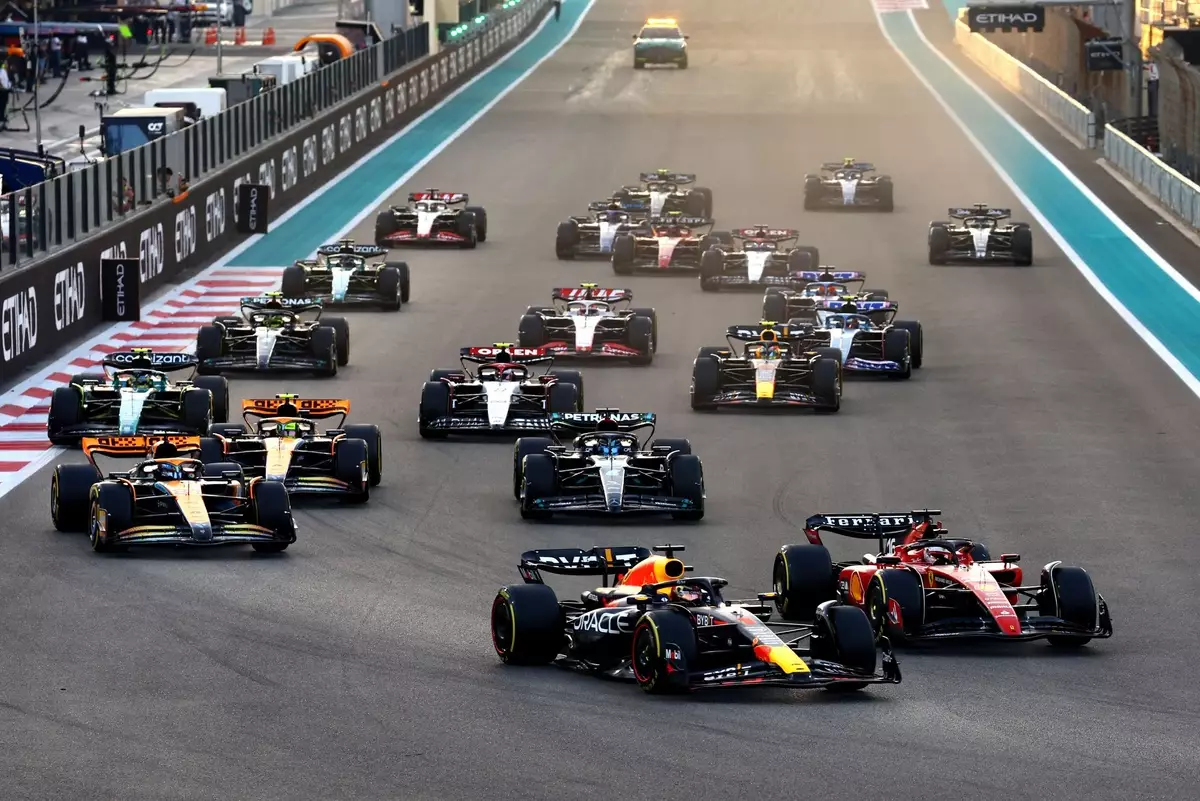Formula 1 (F1) has always been about speed, precision, and innovation, not just within the confines of the race track but also in its administrative and logistical undertakings. Recently, a plan to introduce a rookie sprint race at the post-season test in Abu Dhabi was scrapped, highlighting the complexities involved in executing even the most well-intentioned ideas. As discussions about the future continue, there is much to unpack regarding this decision and its implications for both the sport and its emerging talents.
The initial concept of a rookie sprint race aimed to provide new drivers with valuable experience in contemporary F1 machinery. Set to take place on the Tuesday following the season-ending Abu Dhabi Grand Prix, the proposal garnered support from significant stakeholders within the F1 ecosystem. The sprint event was envisioned as a competitive platform where 10 rookie drivers could showcase their capabilities, enabling them to gain relevant mileage and insight into high-pressure racing conditions.
However, the logistics of implementing such a race within a tight two-month window proved excessively challenging. This complexity reflects not only the ambitious nature of F1 but also the necessity for meticulous planning, given the sport’s intricate operational layers. The decision to postpone the rookie race provides an opportunity for deeper examination of how to effectively integrate emerging talent into the sport.
The logistical obstacles that led to the cancellation are multifaceted. Coordinating a high-profile sporting event like F1 often involves numerous stakeholders— from the teams and drivers to broadcasting companies and sponsorship partners. Each of these elements relies on ironclad organization and timing. With the end of a long season already taxing resources and energy levels, the notion of conducting such an event so soon afterward became untenable.
In essence, what appeared to be a straightforward addition to the post-season schedule transformed into a logistical headache. This scenario underscores the challenge of innovation within a highly demanding environment where time is of the essence and every minute counts.
While the abandonment of this plan may seem disappointing, it serves as a pivot point. By postponing the rookie sprint race until future seasons—specifically the 2025 agenda—the F1 Commission aims to approach the concept with a more comprehensive framework. This aspect is crucial for not only ensuring a well-executed event but also for laying down consistent groundwork for integrating rookies into a highly competitive realm.
The importance of fostering upcoming talents cannot be overstated, as they represent the sport’s future. The decision to revisit the rookie race concept allows for time to collect insights from all stakeholders and develop a more organized format that aligns with the rigorous standards of F1.
In addition to the rookie race discussions, the F1 Commission also addressed upcoming changes to the 2026 technical regulations. Emphasizing both performance and safety, these regulations aim to heighten the aerodynamic capabilities of the cars while promoting competitive fairness. The collaboration between the FIA and the teams highlights a progressive approach toward safety and performance enhancement in the sport.
Moreover, the financial and sporting regulatory changes foreshadow a structural evolution, geared toward providing teams— especially newcomers like Audi and Red Bull-Ford— with the necessary resources to adapt to new power unit regulations. This proactive adaptation demonstrates F1’s commitment to balancing competitiveness and sustainability.
The scrapping of the rookie sprint race illuminates the labyrinthine nature of logistics and organization within Formula 1. While the decision may initially seem like a setback, it opens the door for more meticulous planning and deliberation, ultimately benefitting the sport and its future stars. As F1 prepares for significant regulatory changes and seeks to refine its processes, the narrative remains centered on innovation, adaptability, and respect for the sport’s rich heritage. The future of F1 certainly looks promising with the ongoing commitment to engage and nurture its emerging talents, ensuring that they are well-prepared for the challenges that lie ahead.


Leave a Reply